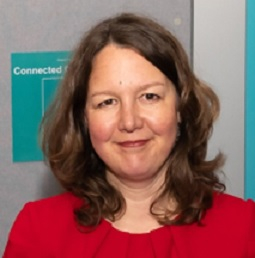
Liz David-Barrett (UK)
Professor of Governance and Integrity and Director of the Centre for the Study of Corruption, University of Sussex
SUMMARY:
The presentation introduces the concept of state capture and argues that it helps to structure our understanding of patterns of grand corruption seen around the world in varied contexts, increasingly even in countries once regarded as secure democracies. The presentation then covers three main areas: First, it situates the concept within a wider literature on corruption and describes how it relates to other similar terms, including grand corruption, regulatory capture and kleptocracy. Second, it elaborates on three pillars of activity that may be subject to capture, and a variety of mechanisms through which state capture occurs. This provides a structure for the gathering of evidence on how capture plays out in different cases and raises questions about the interactions among mechanisms and variation in sequencing. Third, the presentation considers the impact of state capture on economic and social development, by outlining the ways in which it skews the distribution of power and potential long-term consequences for the allocation of rights and resources.
LIZ DAVID-BARRETT BIO:
Liz David-Barrett is Professor of Governance and Integrity at the University of Sussex and Director of the Centre for the Study of Corruption. Her research focuses on corruption risks at the interface of business and government, including in state capture, public procurement and bribery in international business – and on approaches to countering these risks. Recent co-edited books include the Dictionary of Corruption (2023, Agenda, with Robert Barrington, Rebecca Dobson Phillips and Georgia Garrod) and Understanding Corruption: How Corruption Works in Practice (2022, Agenda, with Robert Barrington, Sam Power and Dan Hough). Liz engages widely with anti-corruption practitioners globally, especially in sub-Saharan Africa, the Caribbean and Europe, and has advised the UK government and the G20 on their international anti-corruption work.
Liz’s expertise is often sought by the media, including the BBC Newsnight, the Financial Times and Le Monde. Before becoming an academic, Liz worked as a journalist in the Balkans for The Economist and Financial Times. In 2022-23, she was Head of the Global Programme on Measuring Corruption at the International Anti-Corruption Academy. She has a DPhil, MSc and MA from the University of Oxford and an MA from the University of London.
Her recent article ‘State Capture and Development: A Conceptual Framework’ (2023, Journal of International Relations and Development) sets out a framework for analysing modern patterns of state capture around the world. In addition, she investigates anti-corruption practices with a current focus on transnational networks that fight grand corruption, comparing law enforcement with investigative journalism.